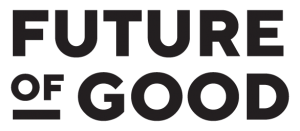EDUCATION AND AWARENESS
ECONOMIC JUSTICE PROJECT- ENDING ECONOMIC ABUSE
ECONOMIC JUSTICE AND FINANCIAL EQUTY PROJECT
We educate the public on what economic abuse is, how to recognize it within the context of domestic abuse, and how to seek help. We train professionals and advocates to support individuals who are experiencing DV/Economic Abuse. We connect recent survivors with women who have been on the healing journey for a long time through mentorship.
The project offers free training to victims/survivors and staff working in social services to identify and respond to financial abuse. It covers the necessary information that shelter workers will need to answer women’s financial questions and support their financial progress. To learn about it click here.

We are committed to educating the public on economic abuse, financial abuse and coercive-control, which impacts the integrity and safety of women and children.
We believe community awareness initiatives are useful tools to educate the public about the different economic challenges faced by survivors of domestic violence, such as costs of recovery, stigma, unemployment, and debt. Knowing what economic abuse is could help prevent it. We want to provide people with information to identify and respond to it.
1. Public Education & Awareness
We are committed to educating the public on economic abuse, financial abuse and coercive-control, which impacts the integrity and safety of women and children. We believe community awareness initiatives are useful tools to educate the public about the different economic challenges faced by survivors of domestic violence, such as costs of recovery, stigma, unemployment, and debt.
Our National Awareness Campaign to end Economic Abuse to educate the survivors, financial institutions and policy makers is a chance education anyone and everyone- victims, survivors, advocates, financial institutions, law enforcement, supporters, and political leaders about the different economic challenges faced by survivors of domestic violence, the prevalence of financial abuse, and the costs of recovery, stigma, unemployment and debt. Knowing what economic abuse is, can help prevent it. We want to provide people with information to identify and respond to it.
Every year CCFWE hosts campaigns on National Domestic Awareness Violence Awareness Month and Financial Literacy Month. The purpose of this national campaign is to educate the survivors, financial institutions, and policymakers about the different economic challenges faced by survivors of domestic violence, the prevalence of financial abuse, costs of recovery, stigma, unemployment, and debt. Knowing what economic abuse is, could help prevent it. We want to provide people with information to identify and respond to it. Read more. Knowing what economic abuse is could help prevent it. We want to provide people with information to identify and respond to it.
1.1 Webinars
Webinar: Recognizing & Responding to Economic Abuse
With speakers from CCFWE, Johannah Brockie – Program Manager for Advocacy and System Change and Jessica Tran – Program Manager for Education and Awareness, this webinar will guide you through the definition of economic abuse, how to identify an economic abuser, impacts of economic abuse, Covid-19 impacts, tactics, what you should do if you are a victim of economic abuse, and key safety tips.
Economic Abuse occurs when a domestic partner interferes with a partner’s access to finances, employment or social benefits, such as fraudulently racking up credit card debt in their partner’s name or preventing their partner from going to work has a devastating effect on victims and survivors of domestic partner violence, yet it’s rarely talked about in Canada. It’s experienced by women from all backgrounds, regions and income levels but women from marginalized groups, including newcomers, refugees, racialized and Indigenous women, are at a higher risk of economic abuse due to other systemic factors.
Watch the Vedio here
Research Presentation on: The Abuse Does Not End When The Relationship Ends
For decades, victim-survivors of domestic abuse have been asked, ‘why don’t you just leave?’. This question illustrates a lack of understanding of how coercive control operates, the safety implications for women attempting to separate, as well as the finances required to separate and remain separated. However, a further fallacy is also at play – the assumption that the abuse ends when the relationship ends.
Through Jennifer Glinski’s doctoral research with victim-survivors and domestic abuse support workers in Scotland, this presentation will explore the various tactics of economic abuse that perpetrators introduce post-separation to continue their campaign of power and control over victim-survivors’ lives. The talk will highlight how post-separation economic abuse includes a variety of interpersonal as well as formal tactics – illustrating how perpetrators are able to facilitate abuse through institutions, such as banks, and via legal processes which are intended to provide justice. With permission from the Domestic Abuse Intervention Program (DAIP), Jenn has adopted the original Duluth Power and Control Wheel to situate the participants’ experiences of post-separation economic power and control and will present this newly adapted wheel to illustrate key findings from her research.
Lear more about Post-Separation Economic Power and Control Wheel
Speaker: Jennifer Glinski, University of Glasgow PhD candidate, Banking Specialist and Domestic & Financial Abuse Expert
Watch the Vedio here:
2. Workshop on Identification and Responding Economic Abuse
3. Training for front line workers (Financial Institution employees and shelters, advocates) – Economic Abuse 101 Training
The training is expensive and covers the necessary information that shelter workers will need to answer women’s financial questions and support their financial progress. Thought this training frontline workers will learn how to identify and respond Economic Abuse and support women at the front line.
4. Outreach and Community Engagement

We are working with Pageant Group Canada and Svetlana Mamaeva, the reigning Miss World Canada who created “FinPowered” a free workshop orientated to financially educate women in shelters, (where up to 51% of residents), have been victims of financial abuse. We have worked together to draft a press release with PGC to put a focus on women’s education and financial focus along with the goal of creating awareness and advocating for the Canadian Government to recognize and address financial abuse and other forms of economic injustice in abusive relationships.
DOMESTIC ECONOMIC ABUSE FINANCIAL LITERACY TRAINING
The financial literacy project for survivors of domestic violence consists of 6 sequential workshops on financial education developed through a trauma-informed lens to enable women to build sufficient financial knowledge, self-efficacy and confidence in their financial goals and financial futures.
To learn more about the program click here.
MENTORSHIP
We are committed to supporting the challenging healing journey of survivors of domestic violence. Our mentorship programme provides coping mechanisms to deal with emotional stress, feelings of isolation, loneliness, depression, helplessness, and hopelessness. We match a recent survivor of domestic violence with a woman who has been on the healing journey for a long time. This mentorship relationship requires a one-year commitment from both mentors and mentees. We will consider several criteria to realize the matches which are coordinated by CCWFE. For more information become a mentor.

